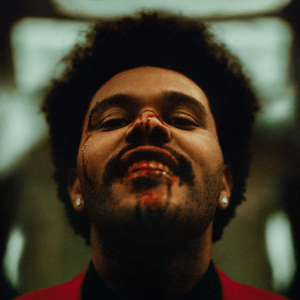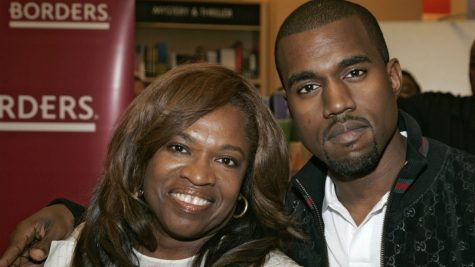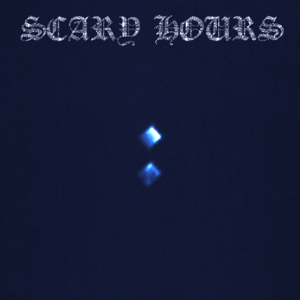The Weeknd’s “After Hours” Review

This is the cover to The Weeknd’s new album, “After Hours.” The project is projected to sell 425,000 units in its first week, the highest seller in his career.
The Weeknd never seems to miss.
After a four year album hiatus, Abel Tesfaye, aka The Weeknd, released his new project, “After Hours,” Friday, March 20.
Following 2016’s “Starboy” and 2018’s EP “My Dear Melancholy,” The Weeknd had a lot of hype and expectations to live up to with this project. With fans expecting a project in late 2019, they anticipated Abel to return to his style from the critically-acclaimed mixtapes, known as “Trilogy.” In late November of 2019, he bursted back into the game with the release of the lead single, “Heartless.”
The single was the first of three and was a complete change of style than he has explored before and caught listeners by surprise. The track was produced by rap producer, Metro Boomin, and was a collaboration that fans didn’t think they needed until they heard it. Following the release of this track, Abel revealed his new look that consisted of a red suit and an afro. He performed on Tonight Shows all throughout the following month and dropped a music video that was the beginning of the cinematic experience of the album. The single, “Blinding Lights,” was released soon after and was a complete turn-around from the first single. The song had a strong 1980’s influence and it seemed to match his new look perfectly. Another video was released to go along with the song and continued to build onto the story being created.
The announcement of the album came mid February along with the title track single, “After Hours.” The song was accompanied by a short film a few weeks later that connected to the two music videos before. All of the singles and videos led to this album having the best rollout and engagement this year and was my most anticipated this year.
The album opens up with the track, “Alone Again,” which is a production-heavy, attention-grabbing introduction. The lyrics of the track act as a cry for help from Abel, as he talks about being in a disguise and he needs help finding his true colors again. He needs someone by his side to hold him down because he doesn’t trust himself when he’s alone. This is a perfect opening track to the album and is a track that immediately shows his growing maturity as an artist.
The following track, “Too Late,” continues with the standout production and ties in more of an electronic sound than the first track. Abel finds himself towards the end of a relationship and he realizes it is too far gone to save. It leads to him blaming himself and puts him into this endless state of the need for love. The hook on this song ties this track together and is the most addicting to listen to on the entire project. Although the song contains these darker, sad lyrics, the track keeps a fast tempo that is very engaging and gets you excited to hear what is next.
Entering the strongest run of the project, the album leads into the track, “Hardest to Love,” which continues the themes of self-doubt and the end of a relationship as the previous two. The slower melody of the song is accompanied by a fast-paced percussion loop in the background which ties in the 1980’s influences from two of the singles off of the album. This track transitions right into the next, “Scared to Live,” where Abel is in a reflective state of mind and is worried about being without someone to keep him grounded. The song is one of Abel’s strongest vocal performances in his career and wraps up the incredibly strong start to the album. Together, these two tracks feel like one big, cohesive track and are my two personal favorites.
Moving into the next two tracks, “Snowchild,” and, “Escape from LA,” Abel continues his reflective state of mind but, this time, through a style that fans were looking for that he had explored in the 2012 collection of mixtapes, “Trilogy.” “Snowchild,” is a track focused on how Abel’s life has changed throughout his career and how his luxurious lifestyle in Los Angeles started to lead to his downfall. It leads perfectly into “Escape from LA,” where he continues to talk about the toxicity of the city and how it can change you into the worst version of yourself. He tries to escape the lifestyle but it seems as if he is trapped and addicted to living this life. These two darker, slow-paced tracks serve as the most important in the album and transition perfectly into what follows.
In between two of the lead singles on the tracklist, “Faith,” is a continuation of what precedes it. His loss of character, religion, and his love is leading to his downfall and it seems like Abel is at his lowest point. At the end of the track, Abel finds himself in the back of a flashing car and seems to be the end of his downfall with himself as he had learned from his mistakes. Throughout the rest of the album, it seems as if the only thing he needs now is love. His self-reflection led to the improvement of his mental state and from this point, the songs seem to pick back up in tempo and mood.
Nearing the final stretch of the album, “In Your Eyes,” is another 1980’s sounding track where Abel talks about seeing through a girl’s flaws and wrongdoings because of his need for love. The song is closed by a saxophone solo that just adds to the beautiful production of the album and the cinematic experience.
The album is brought to a close with the strong, emotional track, “Until I Bleed Out.” It sums up every theme explored and it serves as a complete circle in Abel’s development as a person. He is back to where he was at at the start of the album, alone again.
The only downfall of this album comes in the track, “Save Your Tears.” Although the track can be catchy, it sounds very pop and is a sound that is overused and boring. The track is not bad but compared to the rest of the album, it falls short in every aspect and it sounds like a filler track that didn’t need to be there.
Overall, I feel like this is The Weeknd’s best body of work yet and he can only get better from here. The experience, rollout and overall sound is phenomenal and this album is my personal favorite album of the year so far.
I rate this album a 9.5/10.





